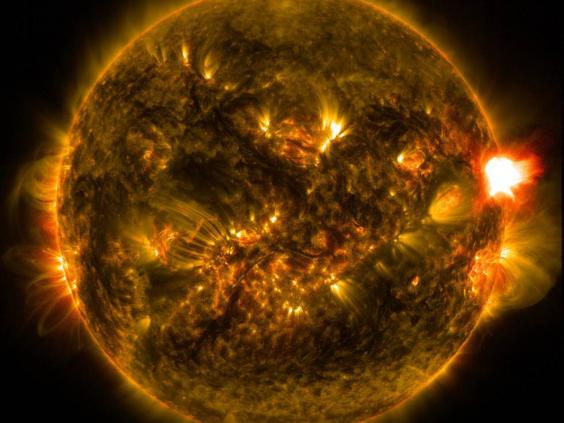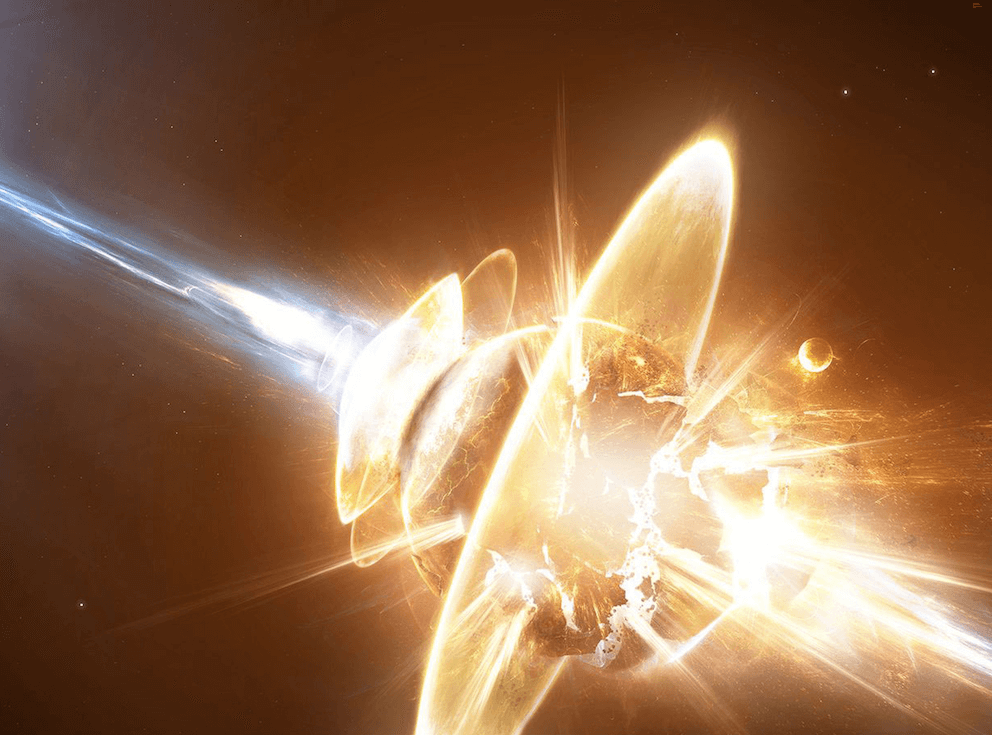When people think of catastrophes, many of them think about natural disasters that happen here on Earth such as volcanic eruptions, tsunamis, or earthquakes. Not many stops to even consider cosmic catastrophes and these are probably the worst of them all. Below are six cosmic catastrophes (in no particular order) that could severely damage the human race if not wipe us out completely:
- Asteroid Impact: Recent studies have confirmed there are large clusters of space rocks in our solar system that could cause us some harm. While we have developed systems that are able to ward off small asteroids, against some of the larger, more rarer ones, we wouldn’t stand a chance. Even if the planet was lucky enough to survive, it’s unlikely humanity would.
- Local Gamma Ray Burst: These can be caused by two stars orbiting a common center (binary star systems) and exploding stars (supernovas). They are ridiculously powerful as all their energy is focused into one short beam that lasts only a few minutes at best. The radiation that would be given off following this could destroy our ozone layer, leaving us unprotected against the sun’s UV rays.
- High Energy Solar Flare: The sun is a strong and powerful star that has the ability to create massive sun spots. It can also eject solar winds out into the atmosphere. If these solar winds are not too powerful, they create amazing views like the Northern Lights, but stronger winds can cause power outages. On a large scale catastrophe level, this would mean no electricity, the internet, heating, GPS, or air conditioning among many other things we rely heavily on.

- Moving Stars: Wandering stars getting too close to our sun can cause catastrophic damage to our planet too. If they get too close to the edge of the solar system, this may cause huge comets to come hurtling down to Earth. If this were to happen, on the off chance it didn’t wipe us all out, it would most definitely cause an increase in climate change, making life much more difficult for the human’s race to survive.
- Expanding Sun: The sun expands as it gets older, and scientists have already calculated that it will end its life in 7.72 billion years. By then it will be large enough to swallow up both Mercury and Venus, and will then works its way over to Earth. It’s expected that in about 7.59 billion years the Earth will be slowed down by the Sun’s strong solar winds and eventually get melted as it spirals into the dying star.
- Nearby Supernovas: Luckily for us, supernova explosions are quite rare and only occur roughly once or twice every century. Also, they normally happen nearer the center of the Milky Way, so we should be ok here and escape the radiation.
https://www.youtube.com/watch?v=QfNqBKAvkpw
More News To Read
- Is Tunneling the Way to Go Solve Congestion? Elon Musk Thinks So
- 5 Ways in Which Artificial Intelligence Will Change an Organization
- Scientists Made Artificial Human Wombs Which Might Prevent the Early Loss of Lives in…
- Our Planet Doesn’t Just Support Life, It is Also Living Vessel
- Autism Patients Could Soon Be Prescribed Cancer Drugs for Treatment











